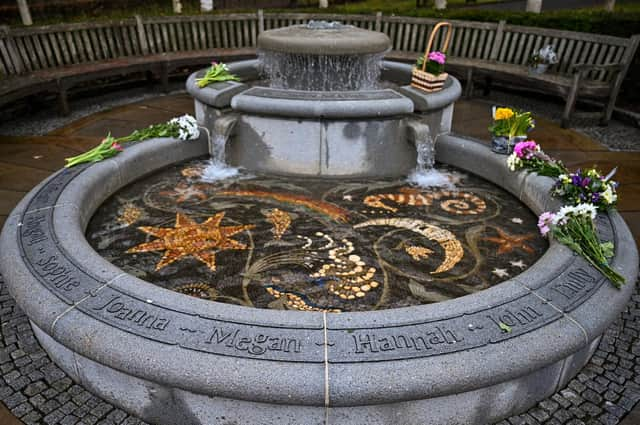The most serious crimes cause intergenerational trauma that we must learn from – Karyn McCluskey


I thought it was something passed down in families as some sort of drive-by feedback – a sort of “you’ll live and you’ll be better for the experience”. I realise now it comes from Friedrich Nietzsche – who coined the phrase “what does not kill me makes me stronger”. It has been used as an ode to resilience, those who have come through torrid times having survived and thrived.
It’s a terrible phrase, perhaps okay for someone who has had a bad date or not done well in an exam – but not something catastrophic.
Advertisement
Hide AdAdvertisement
Hide AdI listened to Michael Ignatieff, the ex-Canadian politician and historian, at the Edinburgh Book Festival. He was speaking about a book he had written called On Consolation (I hadn’t read it). It examines figures through history who have experienced the worst of events, visited the chasms of despair and details where they found consolation from Cicero and figures from the Bible to Primo Levi.
Much of it passed over my head but when he discussed some historical figures enduring terrible events including multiple infant deaths, he said: “Some things are unrecoverable from.”
I have met so many people where a terrible event such as murder or suicide of a loved one has changed their lives completely and utterly. It distorts any future they may have planned for themselves. It creates holes in their hearts and the very fabric of their being that never heal.
No one can tell anyone how to grieve. Some want complete isolation, others turn to campaigning and change. Ignatieff wrote: “The challenge of consolation in our times, is to endure tragedy, even when we cannot hope to find a meaning for it, and to continue living in hope.” Only those impacted can tell you whether that is true.
Those who start on the path for change are powerful advocates for others. The parents of Katie Allan strived for change to deaths in custody after she took her life; Moira Jones’ parents campaigned to help people bereaved by violence after her murder; Lynn Burns aimed to change the way the justice system treated families of victims after the murder of her son Sam.
John Muir campaigned about knife crime after his son Damian was stabbed, and parents from Dunblane started Operation Snowdrop and changed the law around guns and banned handguns. They made the UK safer for all of us.
Listening to them in meetings where they demand change is sobering and incredibly painful to hear when given an infinitesimal glimpse into the depth of their grief. They have become experts in systems and law. They both support and challenge organisations and people to be better and they recognise the people impacted by the system they work in.
We must actively listen to their experiences and we must involve those who have been affected in how we provide services.
Advertisement
Hide AdAdvertisement
Hide AdI have seen the intergenerational trauma that is the result of the most serious crimes. For those who take another path to manage the catastrophic events that come unbidden to their door, we forget them at our peril.
What we draw from their experience changes us all.
Karyn McCluskey is chief executive of Community Justice Scotland
